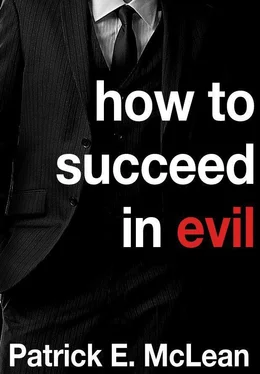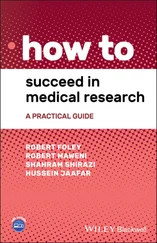Daniel takes the card, not entirely sure of what has just happened. Perhaps he’s not going to jail. But why won’t this feeling of dread desert him?
Clarence decides that he’s done with the entire state of Alabama. When the truck had hit the house, he had been tossed into the sleeper cab. Now that he’s crawled out, he’s decided he doesn’t care about any of this. And why should he? He and his crew are due in Virginia day after next to tear apart a WWII-era generator factory for the Department of Defense. The DoD should have more than enough juice to get him out of whatever ridiculous jam this is. This bullshit is clearly somebody else’s problem. So he fires up the truck and drives away. That night he leaves frilly bits of house scattered across three states.
Chapter Twenty-Two
23 Seconds
When Iphagenia is admitted to the emergency room she is diagnosed with dehydration and extreme sexual exhaustion. But by the time she is discharged, she is no longer in control of her fate. Topper works quickly. As it turns out, the judge with jurisdiction over Hims Chapel, Alabama is yet another of the Sheriff’s cousins. And he thought that Topper was even funnier than the sheriff did.
Normally the argument required to deprive someone of their Power of Attorney and commit them, involuntarily, to a mental institution, takes months. And in cases where staggeringly large amounts of money are involved, years can pass with no resolution. It is necessary to prove, beyond the shadow of a doubt, that the person in question is a danger to themselves or others.
This usually takes days of expert testimony, a careful presentation of meticulously prepared evidence, and, quite often, the deliberation of a jury. But as Topper sips a glass of the Judge’s fine bourbon, he make his case with a handful of photographs and one sentence. “She’s friggin’ crazy.” The judge laughs and signs the paper that transfers control of the entire Rielly estate to Eustace Eugene Rielly. The generous bribe also helps.
Then comes the obligatory stack of legal forms for Dr. Loeb to sign. Topper rattles through them quickly. “Yeah, yeah, yeah. Happy Mother’s Day. Sign here. Initial here. Sign here, here and here.” Somewhere in the middle of the thick stack of forms that Dr. Loeb signs to commit his mother, is a very special contract. It looks like all the others. Across the top it says, Power of Attorney. There are a lot of “Powers of” going on in this case. But this one is different. This form grants Edwin Windsor a complete Power of Attorney for all of Eustace Rielly’s (dba Dr. Loeb) affairs.
Of course, these legal machinations will not hold up to a concerted assault. But Iphagenia has gone around the bend, so she can initiate no legal action. Edwin’s special genius will save him trouble with Dr. Loeb. Restraint. Edwin isn’t going to seize the money all at once. This isn’t a smash-and-grab job. He will bleed it off slowly. Imperceptibly. Imperceptible to Dr. Loeb at least. And along the way he will make certain that Dr. Loeb gets good value for his money. Edwin is going see that Dr. Loeb fully realizes the fantasy of being a powerful and successful supervillain. In Edwin’s eyes it is a fair bargain. And he is certain that, if he could spare the several years it would take to explain the matter to Dr. Loeb, he would see it that way as well.
So it is that Dr. Loeb betrays his own mother, gains control over her and, for 23 seconds, is heir to one of the largest fortunes in the United States. But before he can squander a penny of it, Edwin snatches it from his grasp.
Chapter Twenty-Three
A New Suit
Bone-weary, Edwin enters the private aviation terminal in Mobile, Alabama. As the automatic doors slide open, a wall of cool, processed air envelopes his body. Tendrils of vapor coalesce and spin through the thickened atmosphere outside. As the doors close, Edwin is almost able to forget the world outside the airport.
That is the point of the modern airport, isn’t it? Featureless monotonic travelspace providing uniformly grim comfort to the weary traveler. England, New England, New Delhi and Detroit all the same. Where you might be going and where you might be delayed are indistinguishable until you exit the airport. And no matter how awful your locale, the mediocre plastic womb of the airport is always there for you.
For this and many other reasons, Edwin loathes airports. In fact, in this state of distress and undress, Edwin loathes everything. In a dirty undershirt, tattered and ruined pants, shoes still full of filth, he is a stark contrast to the uniformed plastic of the airport terminal. Edwin recognizes that fatigue and distress color his emotions and distort his thinking, but at this point, there is little he can do about it. The only thing for it is a hot shower and a proper change of clothes. Such necessities seem, at best, hours away; and what would be the point of cleaning up now? He can think of nothing more depressing than putting a clean body back into filthy attire.
On the far side of the terminal, Agnes is making arrangements with the flight crew. Edwin can hear that there has been some mixup with refueling. In her very polite way, Agnes is raking an airport official back and forth over the coals of her proper and righteous indignation. Edwin is confident that she will have it sorted out soon enough. Or, at the very least, she will have a roasted civil servant for her trophy case.
Nearby, Topper has passed out in an uncomfortable seat. There is a misleading innocence that gathers around him as he sleeps. Perhaps it is just his childlike size. But this veil of innocence is perforated by boozy snores that presage the titanic hangover condensing within him.
In his exhaustion, Edwin paces around the terminal. There is little point in sitting in one of the plastic terminal chairs. They are too small. Everything built for the public is simply the wrong scale for him. And Edwin, exhausted though he may be, will not offend dignity by sitting on the floor. Even the prospect of a rest seems as if it will be small consolation.
It is optimism (as much an analytical sin as pessimism) that has cost Edwin one of the few truly great bespoke tailored suits in the world. As great generals look back on massacres, Edwin considers the events that have led to the destruction of his suit. How could he have been so blind? How could he have thought that he was dealing with civilized people?
When Agnes asks such questions he brushes them off. But as Edwin paces the terminal, these questions hang on him like medals of defeat. Was he wrong to assume that people could be even remotely rational? Why does he see the world in a way foreign to those around him? Are the tasks he sets himself inherently hopeless?
Despair drapes the great man like a shroud. Of course, Edwin has made money. He always manages to make money. But what he can never seem to do is make sense of the world. Even as he thinks these things, he knows it is the fatigue thinking them. But he cannot stop himself. He cannot even stop his pacing. Just like he cannot stop trying to talk sense to the insensible.
He crosses his hands behind his back and bows his head. Chin touching his chest he considers the tattered remnants of his suit pants. The light grey and clean, rational lines have been horribly blotted and marred by all manner of filth. The left pant is torn halfway up the calf. This is the garb of some sweaty, maladjusted and weak-minded adventurer. Can his current state really be the reward for his long efforts?
He hears the automatic door behind him open and close. As the crisp, measured clicks of dress shoe heels draw closer to him, he turns. The afternoon light reduces the approaching figure to a silhouette. The outline of a man in a bowler hat, carrying something draped across his arm.
Читать дальше


![Коринн МакКей - How to Succeed as a Freelance Translator [calibre 3.46.0]](/books/402693/korinn-makkej-how-to-succeed-as-a-freelance-transl-thumb.webp)









